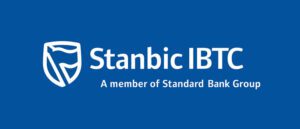
Zenith Bank, UBA, others maintain NPL ratio below 5%
By Kayode Tokede
Zenith Bank Plc, United Bank for Africa (UBA) Plc, among others maintained Non-Performing Loan (NPL) ratio below five per cent, a prudential maximum threshold required by the Central Bank of Nigeria (CBN) for banks operating in the country.
Specifically, United Bank for Africa Plc (UBA) NPL’s dropped to 4.70 per cent in 2020 from 5.30 per cent in 2019.
The Group Chief Financial Official, UBA, M. Ugo Nwaghodoh explained that the drop in Group’s NPL ratio declined to 4.7 was driven by growth in the loan book, robust credit risk monitoring architecture, and payment of Past Due Obligations (PDOs).
Zenith Bank Plc in 2020 reported 4.29per cent NPL as against 4.30per cent in 2019, while Union Bank of Nigeria (UBN) plc reported four per cent NPL in 2020 from 5.80 per cent in 2019.
The Chief Financial Officer, UBN, Mr. Joe Mbulu, stated that, “We continued to proactively manage our growing risk asset portfolio and recorded better asset quality, with our NPL ratio improving from 5.8 per cent to four per cent. This achievement, combined with a solid capital adequacy at 17.5 per cent and continued top-line growth provides the platform for strong growth going forward.”
In addition, FCMB Group Plc in 2020 reported 3.30per cent NPL from 3.70 per cent in 2019 as Stanbic IBTC Holdings Plc rose to four per cent in 2020 from 3.90per cent in 2019.
However, Guaranty Trust Bank (GTBank) Plc and Ecobank Transnational Incorporated (Nigeria) Plc reported NPL ratio above five per cent in 2020.
GTBank in the period under review reported 6.39per cent NPL as against 6.53per cent reported in 2019 while ETI (Nigeria)’s NPL dropped from 23.90 per cent in 2019 to 19.90 per cent
Our correspondent noted that ETI, in the year under review reported 7.6 per cent NPL from 9.7 per cent reported in prior year.
GTBank maintained that it continued to strengthen controls around loan performance by proactively identifying vulnerable sectors with heightened PDs and put in measures to minimize default.
According to the bank’s presentation to analysts/investors, “These include, but not limited to, institution of hedges against exposures in Oil & gas sector, reduction of interest rate in the retail segment and deferral of principal repayment for SMEs.
“Implementations of the CBN’s directive on moratorium of 1 year and reduction in interest rate granted on all CBN intervention facilities also helped to ameliorate the heightened PD on the businesses financed with the CBN intervention funds.
“In line with the Group’s guidance for NPL Coverage, FY 2020 coverage ratio closed at 128.7 per cent from 126.6 per cent recorded in 2019.”
ETI stated that, “It is our planned objective to steadily increase the coverage ratio towards 100 per cent and to reduce the NPL ratio to the five per cent range in the near team.
“We are proactively engaging with clients to assess their conditions one year into the pandemic and agree on new normal concerning performance/repayment levels.
“We continue to adjust our operating model, for speed and flexibility through centralization and digitalization of the credit process from origination to remedial management.”
The Monetary Policy Committee (MPC) of the CBN had noted the marginal increase in NPL ratio to 6.01 per cent in 2020 from 5.88 per cent at November and above the prudential maximum threshold of five per cent.
They noted that “This development is not unexpected under the prevailing circumstances; it urged the CBN to strengthen its macroprudential framework to bring NPLs below the prescribed benchmark.”
Reacting over rise in NPL ratio, the Governor, CBN, Mr. Godwin Emefiele had said, “I am aware of the marginal increase in the NPLs ratio which rose to 6.01 per cent at end-December 2020 from 5.88 per cent at end-November 2020.
“With the impact of the coronavirus on particular sectors of the economy, it was not entirely unexpected, nevertheless it is imperative that we continue to work to ensure that banks comply with our macro prudential framework in order to prevent further deteriorations in their loan portfolios.
“Nonetheless, all other financial system indicators are reflective of a sound and robust financial system.”



